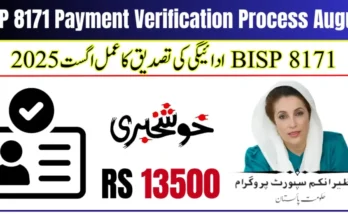ISLAMABAD: The Senate Standing Committee on Power, chaired by Senator Mohsin Aziz, is meeting today (Monday) in a bid to hammer out an “out-of-the-box” solution to the long-running dispute over Net Hydel Profit (NHP) between the federal government and the provinces — especially Khyber Pakhtunkhwa (KP).
However, the Water and Power Development Authority (WAPDA) has reportedly distanced itself from any such new proposal. The issue is also under review by a separate committee headed by Planning Minister Ahsan Iqbal. The Ministry of Energy (Power Division) is represented by the CEOs of CPPA-G and PPMC.
The Senate committee has already held five meetings with officials from all four provinces, the Energy and Finance Divisions, and other stakeholders. Further updates on a possible final agreement are expected from the Ministry of Inter-Provincial Coordination.
WAPDA Says It’s Not Their Call
KP has been pressing hard to recover billions in pending NHP dues. WAPDA says that under Article 161(2) of the Constitution, the Council of Common Interests (CCI) sets the sale rate at the “bus bar” of hydropower stations. But calculating NHP has been messy, with conflicting interpretations of the Kazi Committee Methodology (KCM).
Past efforts — from ad-hoc payments to arbitration — have failed to produce a lasting settlement.
After power sector restructuring, WAPDA paid KP about Rs 6 billion annually in NHP until FY 2014-15. In FY 2015-16, NEPRA uncapped the rate to Rs 1.10/kWh following KP’s request, leading to a settlement of Rs 70 billion in arrears in four instalments. The agreement was signed on February 25, 2016 and approved by the CCI four days later.
Punjab later settled its own NHP claims — Rs 82.71 billion — under a similar arrangement approved in December 2016.
NEPRA then raised the rate slightly to Rs 1.155/kWh in FY 2017-18. Still, KP returned to the CCI, demanding payments under the old KCM formula.
WAPDA argues that based on past government decisions — including a 2019 ECC directive for the Power Division to secure NHP financing and the Finance Minister’s comments that CPPA-G will handle future NHP payments directly — the Power Division and CPPA-G are better placed to propose any “out-of-box” fix.
WAPDA stresses it earns no profit from hydropower sales, with NHP simply passed through under government rules. But delayed payments from CPPA-G have left WAPDA struggling to meet NHP obligations:
-
Rs 49.565 billion owed to KP
-
Rs 114.584 billion owed to Punjab (including Rs 13.617 billion in arrears)
Power Division’s Take
The Power Planning & Monitoring Company (PPMC) points out that:
-
Article 161(2) says NHP is based on net profits from hydropower in the province where the plant is located, excluding it as a pass-through cost to consumers.
-
The KCM formula dates back to a time when WAPDA was a single, unbundled power producer — before the rise of IPPs and a diversified energy mix where hydropower now makes up around 27%.
-
NHP should be paid via the federal budget or from WAPDA’s own hydropower profits — not by raising electricity tariffs.
-
Transferring hydropower plants to provinces is not covered under the WAPDA Act and these projects are usually funded through PSDP, donor loans, and WAPDA’s own resources.
-
The idea of paying NHP through an escrow account does not fit Pakistan’s legal or constitutional framework.
Sindh Warns Against Rushed Transfers
The Government of Sindh has submitted a proposal to transfer hydropower stations to provinces in place of NHP payments. But it stressed that hydropower generation is a by-product of dam projects, and any plan should involve the Indus River System Authority (IRSA) to ensure water management priorities are respected.
Sindh also wants Finance Division and Economic Affairs Division representatives included in talks for financial and technical input. The province reiterated its earlier stance from the 49th CCI meeting — supporting KP and Punjab’s NHP claims as constitutional, but opposing any increase in consumer tariffs.


